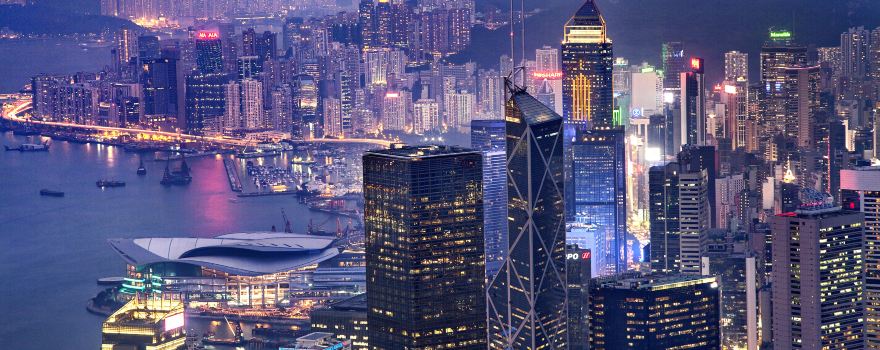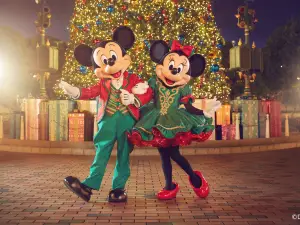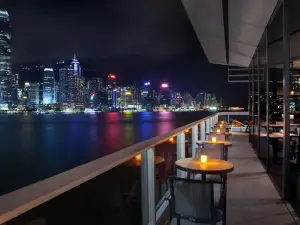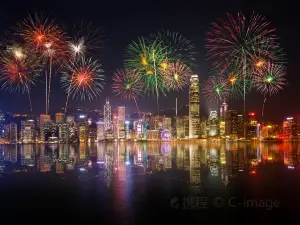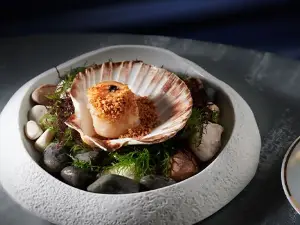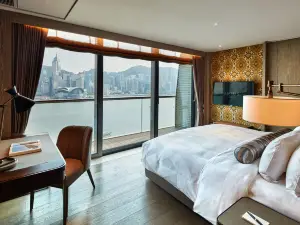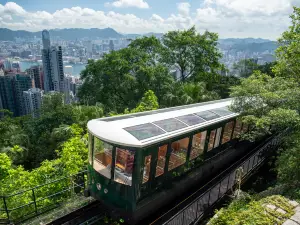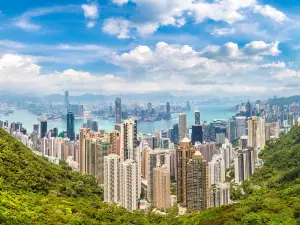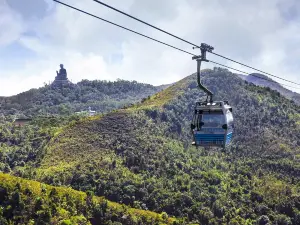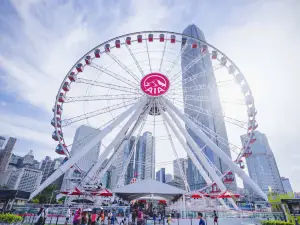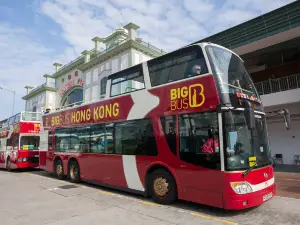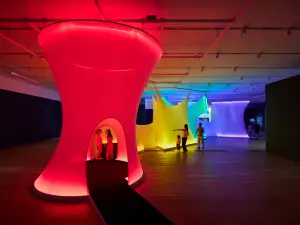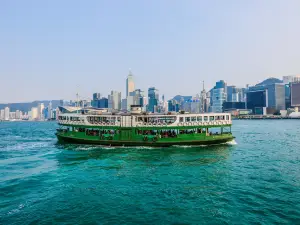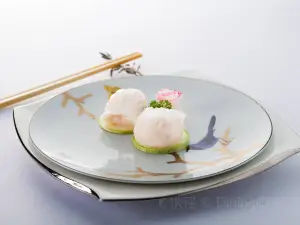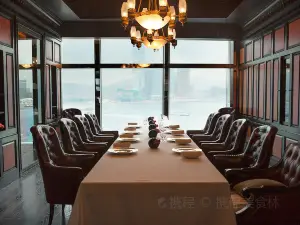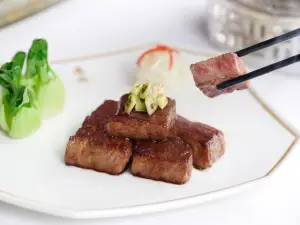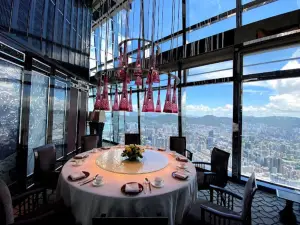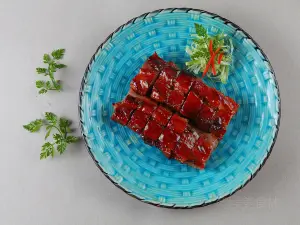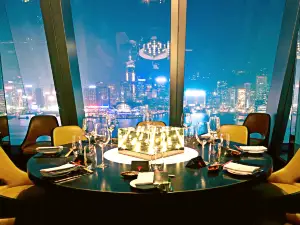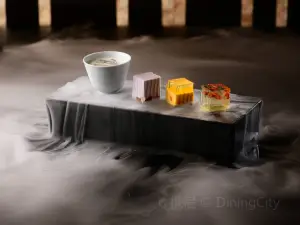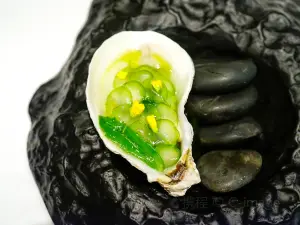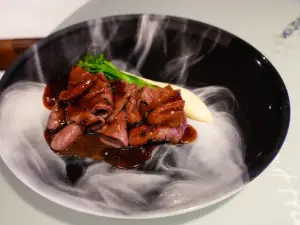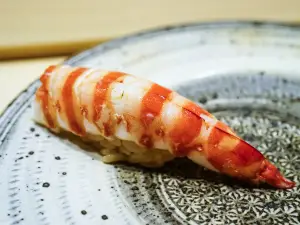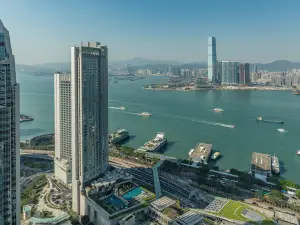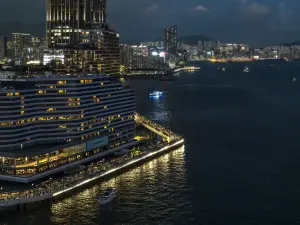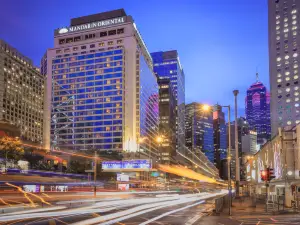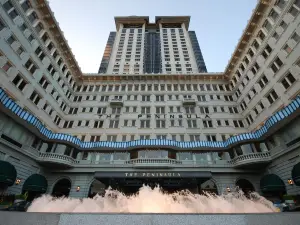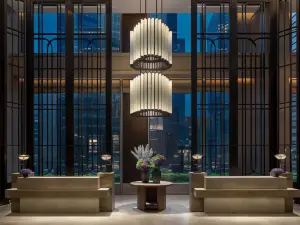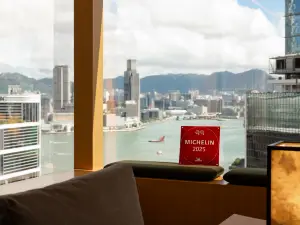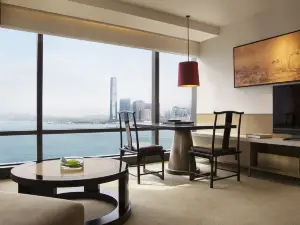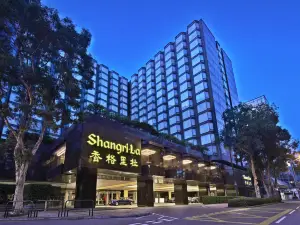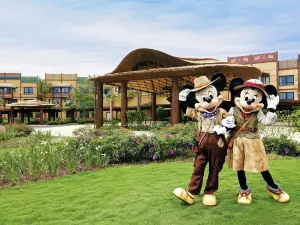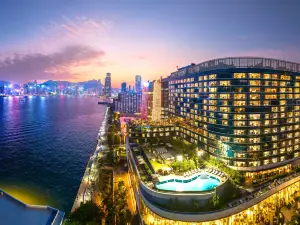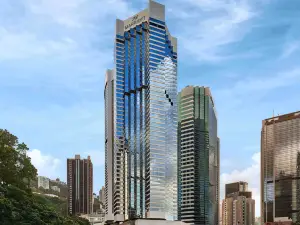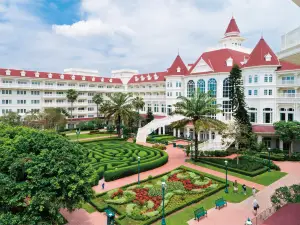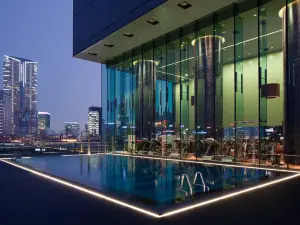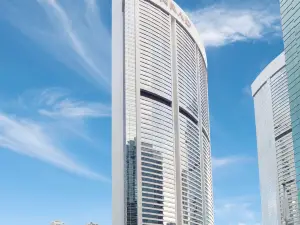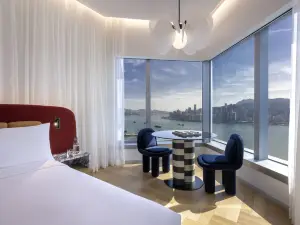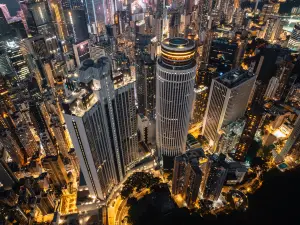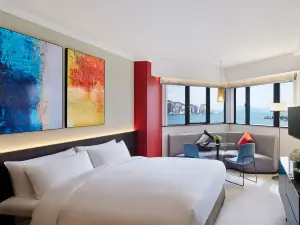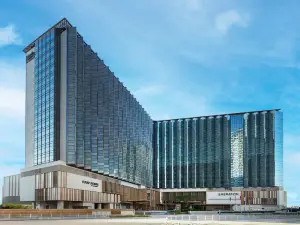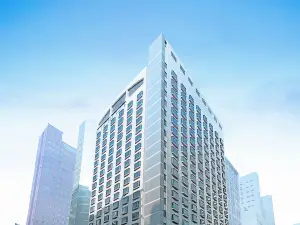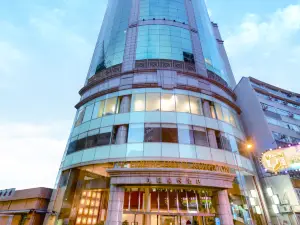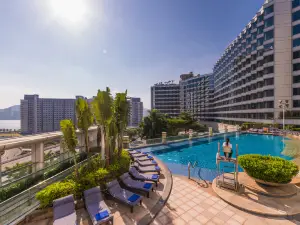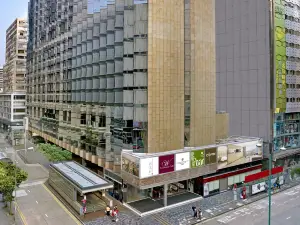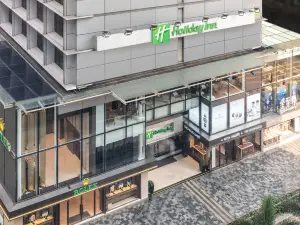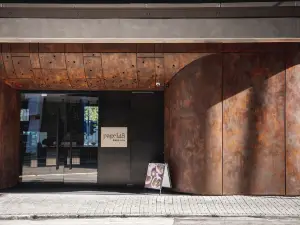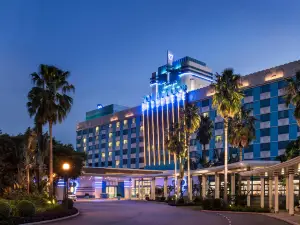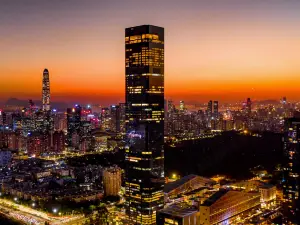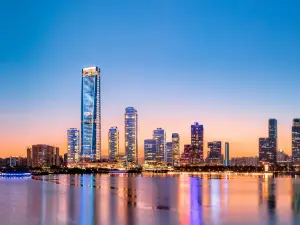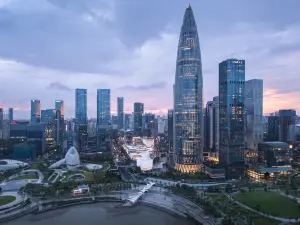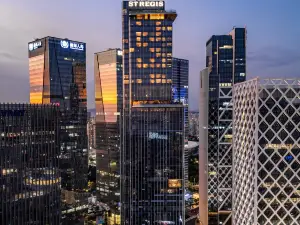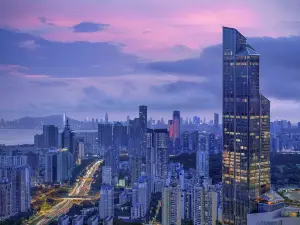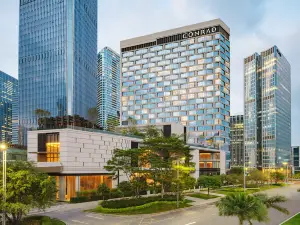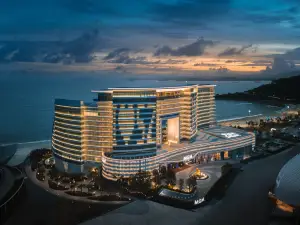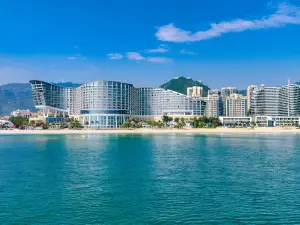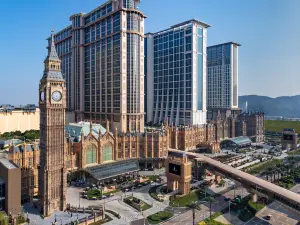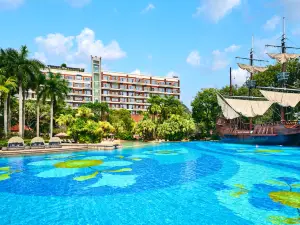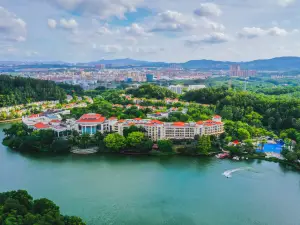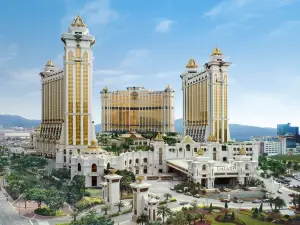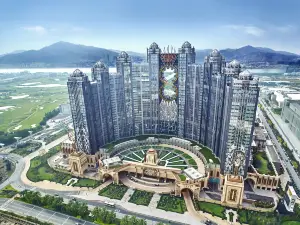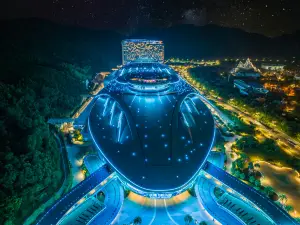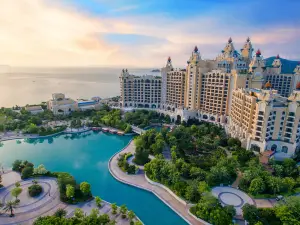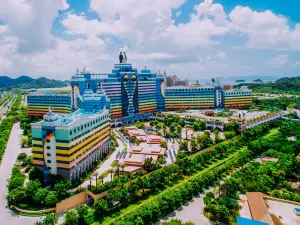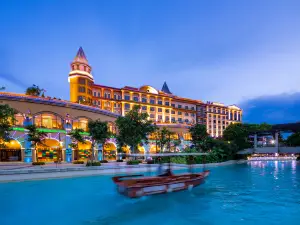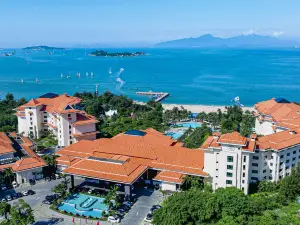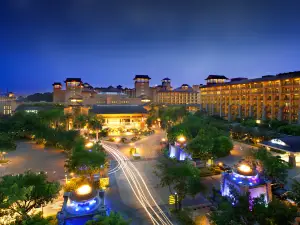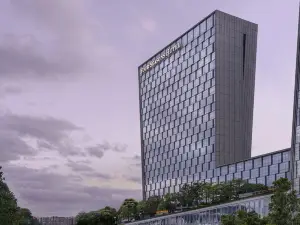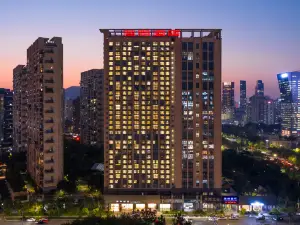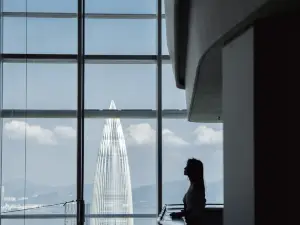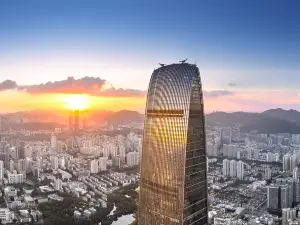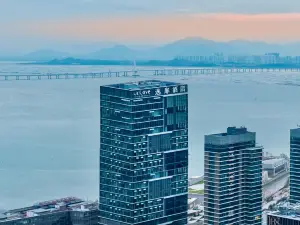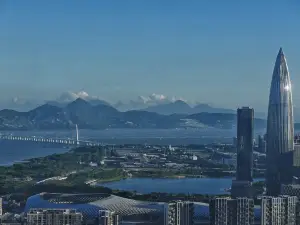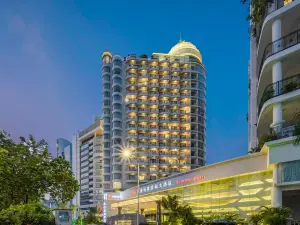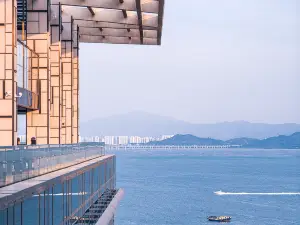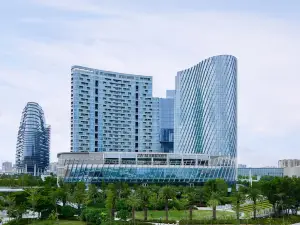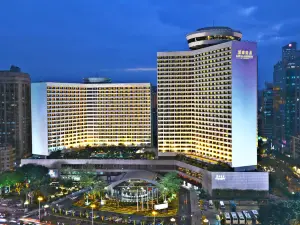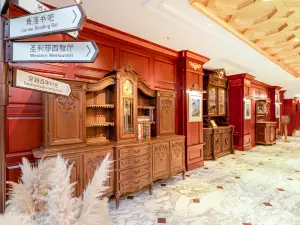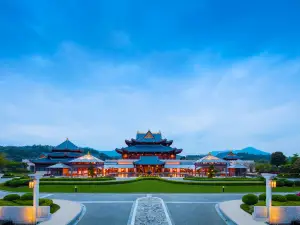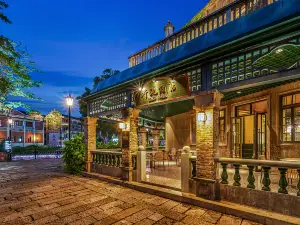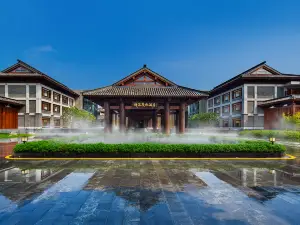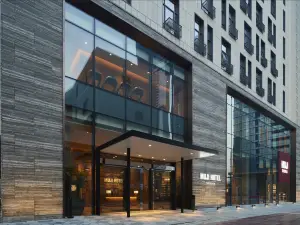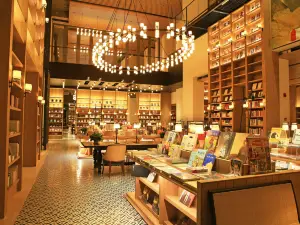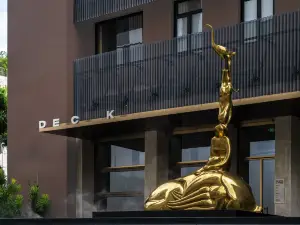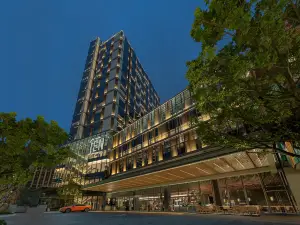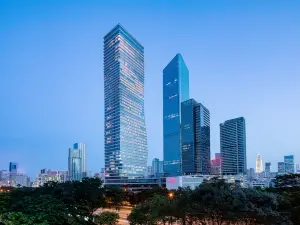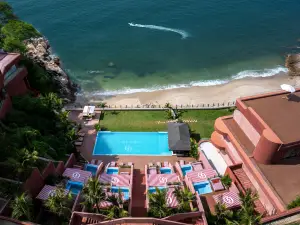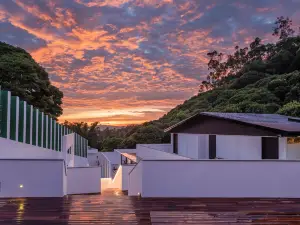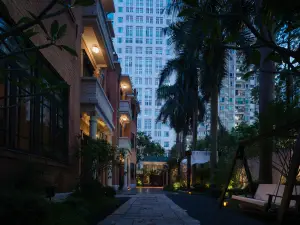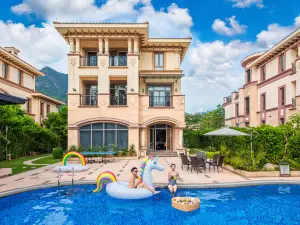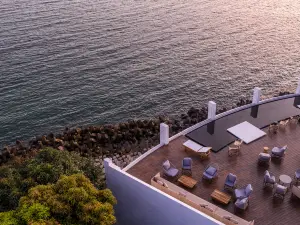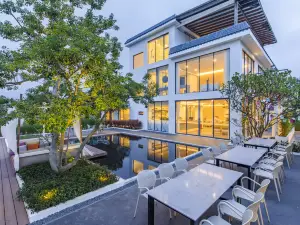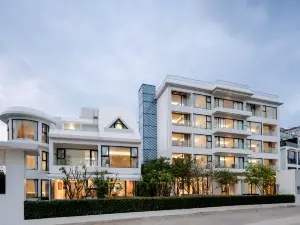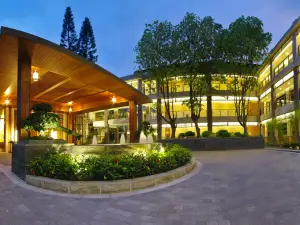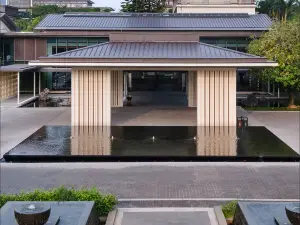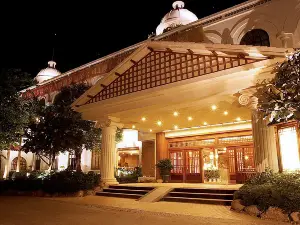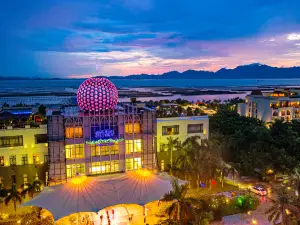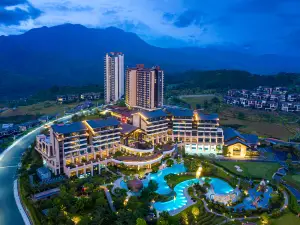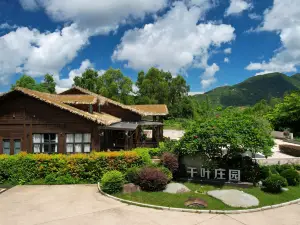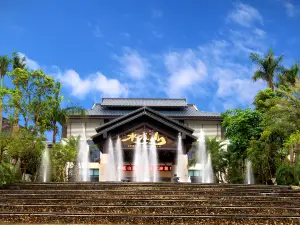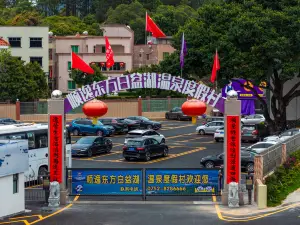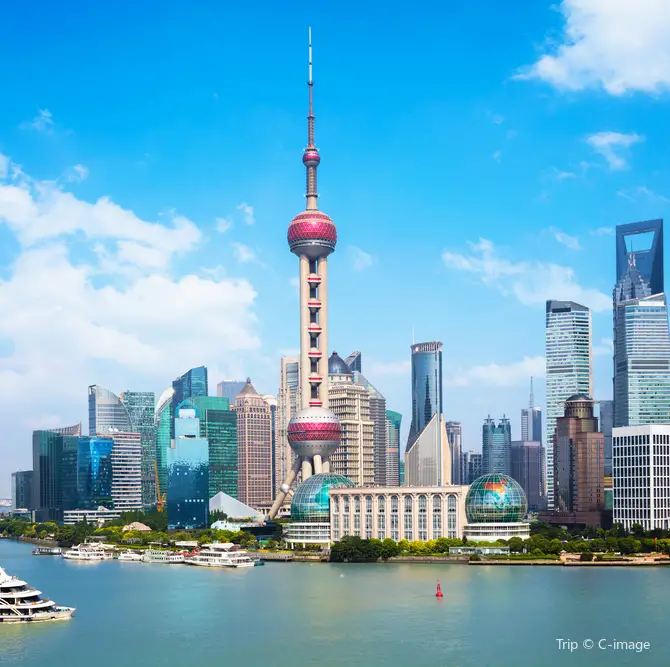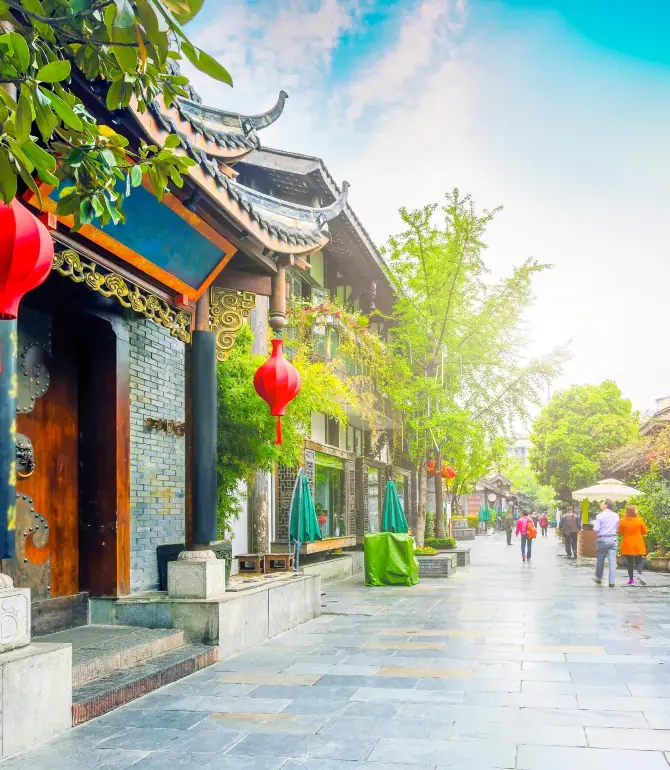Hong Kong Travel Guide 2025: Top Attractions, Things to do & Itinerary | Trip.com | December, 2025
About Hong Kong
Recommended trip: 2–5 day(s)
Recommended trip: 2–5 day(s)Current weather conditions
Hong Kong Local Experiences Map

Trending in Hong Kong
Hong Kong Local Travel Guide 2025
Hong Kong Brief Guide
Hong Kong, Asia’s vibrant hub, is known for its stunning skyline, skyscraper jungles, and neon-lit harbors. It offers everything from bustling street markets and world-class dining to tranquil coastal escapes and serene hiking trails. This guide will help you craft your ideal adventure, navigating its exciting blend of urban buzz and coastal tranquility.
Hong Kong Must-try local experiences
1. Ride the Ding Ding Tram Hop on a “Ding Ding” tram—the world’s only double-decker tram system still running—through Hong Kong Island. Take the Kennedy Town to Central route and snag an upstairs seat for a front-row view of the city’s bustle. It’s a slow, rattling ride past Hong Kong’s urban pulse. Avoid rush hours (8-9:30 am/6-7:30 pm) for a quieter trip. 2. Ascend Victoria Peak Ride the Peak Tram up Victoria Peak—grades hit 27°, steeper than San Francisco’s cable cars—for harbor views, or hike up for a more challenging trek. Stroll the 45-minute Lugard Road loop for calm city and sea vistas at sunset; book timed sunset entry slots via The Peak app. The Peak Tower offers a high lookout over the skyline’s evening glow. 3. Roam Bustling Streets Wander Sheung Wan—inhale incense coils at Man Mo Temple (hanging until 6 pm, best for morning photos), then climb retro Pottinger Street’s stone steps. Stroll Central, spot vibrant graffiti along Graham Street, or explore Tai Kwun, a prison reborn as an arts hub. Visit Yau Ma Tei’s Temple Street night market—Cantonese opera often hums on weekends near Tin Hau Temple. Each corner buzzes with Hong Kong’s unique charm. 4. Taste Hong Kong Flavors Sip milk tea with pineapple buns at a cha chaan teng or grab fish balls and egg waffles from street stalls. Try cart noodles with pig’s blood cake in Mong Kok, or savor dim sum—shrimp dumplings and siu mai—at old-school teahouses like Luk Yu Tea House on Stanley Street, where tray-toting aunties still serve. Clattering trays set the vibe. 5. Browse Hong Kong’s Shopping Scene Browse Tsim Sha Tsui’s Harbour City for luxury goods, or Mong Kok’s Sneakers Street and Ladies’ Market for trendy kicks and bargains. Hit Causeway Bay’s Times Square for upscale hauls, Sham Shui Po’s Golden Computer Centre for cheap tech, and Apliu Street for vintage gadgets. Hong Kong’s a shopaholic’s paradise, top to bottom. 6. Catch Victoria Harbour’s Glow Watch the Symphony of Lights at 8 pm from Tsim Sha Tsui’s Avenue of Stars— with Bruce Lee and Maggie Cheung statues—as skyscraper beams dazzle Victoria Harbour. Ride the Star Ferry for a close-up shine or relax on West Kowloon’s waterfront lawn to see cargo ships glide by. It’s Hong Kong’s nightly spectacle. 7. Explore Theme Parks Visit Hong Kong Disneyland—Ant-Man and The Wasp: Nano Battle! Zips you through, Mystic Manor twists with oddities, and fireworks burst over the Castle of Magical Dreams. Try Ocean Park—ride Hair Raiser or Flash’s vertical drop, see shark tanks and pandas, plus hit Water World’s 27-meter slides in summer. Both are easy to reach by MTR. 8. Hike Wild Trails Trek Dragon’s Back—ridge trails drop to Shek O’s glassy sea in 2.5-3.5 hours, with surfers dotting below; bring HK$20 for the bus return. Try MacLehose Trail’s Section 2—white sands lead to Po Pin Chau’s hexagonal sea stacks, accessible only at low tide (check HK Observatory app). Both weave through hills with stunning coastal views. 9. Visit the Big Buddha Ride Ngong Ping 360’s cable cars to Lantau—glass floors show the hills below—leading to the 26.4m Big Buddha (34m with lotus base). Nearby, stroll through Tai O’s stilted fishing village; book boat tours to pink dolphin zones. Enjoy Po Lin Monastery’s calm and veggie meals for a peaceful day above the city hum. 10. Cycle Island Escapes Ferry from Central to Cheung Chau—bike car-free lanes from Kwun Yam Beach to Pak Tai Temple’s old carvings (rentals near ferry pier). Or roll through Lamma Island’s fishing villages—seafood shacks line Yung Shue Wan. The 30-minute rides open quiet paths and sea breezes beyond the skyline. 11. Stroll Heritage Trails Walk the Ping Shan Heritage Trail from Tin Shui Wai MTR—ancient walls, Hong Kong’s only ancient three-story Tsui Sing Lau Pagoda, and ancestral halls trace centuries. Add Kam Tin’s Kat Hing Wai walled village—stone gates guard Hakka history. It’s a quiet step into Hong Kong’s rural roots. 12. Relax on the Beaches Take a bus from Central to Repulse Bay Beach—it will take you 30 minutes to get to the soft sand, calm waves, and hillside mansions. Try Stanley Main Beach—livelier tides near a Tin Hau shrine and weekend markets. Both swap urban grind for sun-soaked shores and a quick dip. 13. Ride the Urban Escalator Ride the Central–Mid-Levels Escalator—the world’s longest outdoor covered system at 800 meters—uphill to Mid-Levels from 10am-midnight (downhill 6-10am). Stop in Soho for coffee, then walk down past wet markets. It’s a smooth lift through Hong Kong’s buzz.
Hong Kong Must-see Attractions
Hong Kong dishes up a wild mix of thrills and traditions—from theme parks that roar with energy to quiet monasteries perched above the city’s hum. Each spot pulls you into a different side of this restless city.
Hong Kong Food Guide
Hong Kong’s food scene is a relentless collision of taste—woks flare, tea steeps, and carts hum with heat, turning out dishes that stick with you.
Hong Kong Transportation
Hong Kong is easily accessible by air, rail, bus, or ferry from international and domestic locations within mainland China and beyond. By Air Hong Kong International Airport (HKG): The primary gateway, located ~40 km (24 miles) west of Centra. Serves international flights and domestic routes. To City Center (Central/Kowloon): Airport Express (MTR): 24 minutes to Central or 20 minutes to Kowloon. Operates ~5:50 AM–1:00 AM, every 10–12 minutes. Pay via Octopus card, contactless payment, QR code, or ticket machines (English interface). Free shuttle buses from MTR stations to major hotels. Airport Buses: Routes like A11 (Central, ~50 minutes, HK$44) or A21 (Kowloon, ~45 minutes, HK$38) run 5:30 AM–midnight. Pay via Octopus, contactless cards, or cash (exact amount). Taxis: Red taxis to Central (HK$340–400, 30–45 minutes). Surcharges apply for luggage (HK$6/piece) and tolls (~HK$15). By Train Hong Kong West Kowloon Station: The main hub for high-speed trains (G-series) on the Guangzhou-Shenzhen-Hong Kong Express Rail Link, connecting to Guangzhou (50–60 minutes), Shenzhen (15–20 minutes), Beijing (9 hours), and many other locations. To City Center: West Kowloon Station connects to MTR (Tung Chung or Tuen Ma Lines, ~15–20 minutes to Central/Kowloon). Taxis cost ~HK$80–120. By Bus Key Bus Terminals: Cross-border buses from Mong Kok East or Tsim Sha Tsui connect to Shenzhen (1–1.5 hours), Guangzhou (2.5–3 hours), and other mainland cities via operators like China Travel Service (CTS). Trains are faster for mainland destinations; buses are more suitable for budget travelers. By Ferry Hong Kong-Zhuhai-Macau Bridge Port and China Ferry Terminal (Tsim Sha Tsui): High-speed ferries connect to Macau (~1 hour) and mainland cities like Zhuhai (~1 hour). To City Center: Sheung Wan and Tsim Sha Tsui terminals connect to the MTR.
Hong Kong Where to Stay
Hong Kong’s sprawl means where you stay shapes your trip—each district hums with its own rhythm.
Hong Kong Best Time to Visit
Spring (March-April): Cool (20-25°C/68-77°F), clear—great for hiking and festivals like Rugby Sevens or Hong Kong Film Festival. Crowds build, so book early. Autumn (October-November): Crisp (22-28°C/72-82°F), sunny—perfect for outdoor sights like The Peak. Peak season means higher rates, busier spots. Summer’s sticky, typhoon-prone; winter’s damp but manageable if layered.
Hong Kong Travel Tips
1. Plan Around Temple Street Night Market’s Rhythm Temple Street Night Market in Kowloon kicks off after 6 p.m.—trinkets, street food, fortune tellers—but shuts Mondays for cleanup. Hit Tuesday or Friday; weekends pack tight by 8 p.m., so slide in earlier to dodge the crush. Bring small bills—vendors lean cash over cards. 2. Secure Peak Tram Tickets Ahead The Peak Tram to Victoria Peak means up to 60 minute waits—or longer—in peak times like October or Chinese New Year. Book online a day or two ahead for a timed slot; early rides around sunrise catch the haze lifting off the skyline. Spare morning? The nearby Morning Trail’s a scenic dodge if lines drag. 3. Navigate Public Transport Like a Local Hong Kong’s MTR is fast and spotless—snag an Octopus card at stations (small deposit, reloadable) for trains, buses, even convenience stores. On escalators, stand right, walk left—same for the Mid-Levels Escalator—or you’ll jam the flow. No eating or drinking on trains—fines sting if caught. 4. Avoid Peak Hours on Footbridges The elevated walkways in Central and Admiralty swarm from 7-9 a.m. and 5-7 p.m.—office workers move like a tide. Sidestep them during those slots or brace for slow shuffles; quieter routes like side streets near Sheung Wan offer breathing room and a peek at old shopfronts. 5. Pack for Hong Kong’s Weather Swings July steams at 32°C (90°F) with 80% humidity, February cools to 17°C (63°F) with drizzle—light layers fit all year. Grab a foldable umbrella or buy one cheap at a corner store. Typhoon season (May-Oct) can halt ferries—check the HK Observatory app for signal alerts. 6. Stay Sharp Around Crowds Tsim Sha Tsui and Causeway Bay draw pickpockets—watch for kids bumping you or fake petitions that distract. A crossbody bag beats a backpack; keep your phone zipped up. If someone offers a “free” bracelet or palm reading, it’s a hustle—nod politely and keep moving. 7. Ride the Ferries, Skip the Taxis Taxis from the airport to Central run steep, but the Airport Express train (moderate fare) hits town in 24 minutes, linking to the MTR. In-city, the Star Ferry’s dirt-cheap ride across Victoria Harbour beats cabs for views—runs every 10 minutes till late. 8. Mind the No-Smoking Rules Smoking’s out in indoor public spots, parks, and near MTR entrances—fines climbed since 2023’s crackdown. Vaping’s banned too; don’t pack e-cigs, or customs might nab them. Need a smoke? Find a quiet corner—bins often mark OK zones. 9. Eat Smart - Avoid the Tourist Traps Dim sum near Victoria Peak can gouge deep; hit Mong Kok’s no-frills joints for cheap plates—same taste, less sting. Wet markets like Wan Chai’s sell fresh fruit for a song—grab a mango and munch by the harbor. 10. Haggle with Market Vendors Bargaining’s fair game in Mong Kok or Sham Shui Po—start at half the asking price and nudge up with a grin. Cash is king; midweek mornings trim the bustle, giving you room to deal. 11. Grab a SIM at Arrival Snag a prepaid SIM at Hong Kong Airport—7-day plans with solid data run cheap from CSL or China Mobile, sold at 7-Eleven or counters. Free Wi-Fi’s patchy outside malls; skip roaming unless you’re flush. 12. Snap Photos with Care Hong Kong’s streets beg for shots, but ask before framing hawkers or monks—temples like Wong Tai Sin ban flashes inside. Residential spots like Quarry Bay’s “Monster Building” are homes, not sets—keep quiet, skip doorsteps, or risk a glare. Tripods need permits at places like Victoria Harbour; stick to handheld for quick skyline grabs.
Hong Kong Useful Guide
Hong Kong is a trilingual city, with Cantonese, Mandarin, and English serving as official languages. Cantonese: Spoken by over 88% of residents, dominant in daily life, markets (e.g., Temple Street), and local eateries. English: Widely used in tourist areas, hotels, restaurants, and attractions. Signage, menus, and MTR announcements are available in both English and Chinese .
Trip.Best: Hong Kong
Things to do in Hong Kong
What to do
Where to stay
What to eat
Hong Kong Moments: Through Travelers' Eyes

Huizhou Heipai Corner | Sunny Day Legend

Hong Kong Hiking | Measure the mountains and seas with your footsteps on the weekend!

🇭🇰🥟Hongkong— The Best Michelin Guide ⭐️⭐️⭐️

Honest Chinese stomach | I broke down in love with the Italian restaurant in the IFC Mall, which was full of Christmas atmosphere.
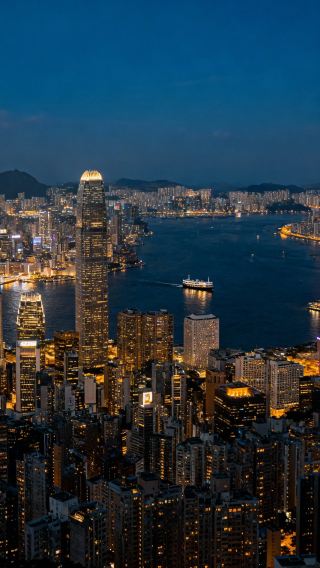
Hong Kong Countryside Two-Day Hiking Tour|Discover the Same Stunning Secret Spots as TVB!

I Flower Morning Moon Evening KUNOI Hidden Chef in Tsim Sha Tsui District

I Ching: Bao Haoxin Photography Art

Sayram Lake|A trip here is truly worthwhile! The last tear of the Atlantic Ocean
Best of Hong Kong
About
Site Operator: Trip.com Travel Singapore Pte. Ltd.
